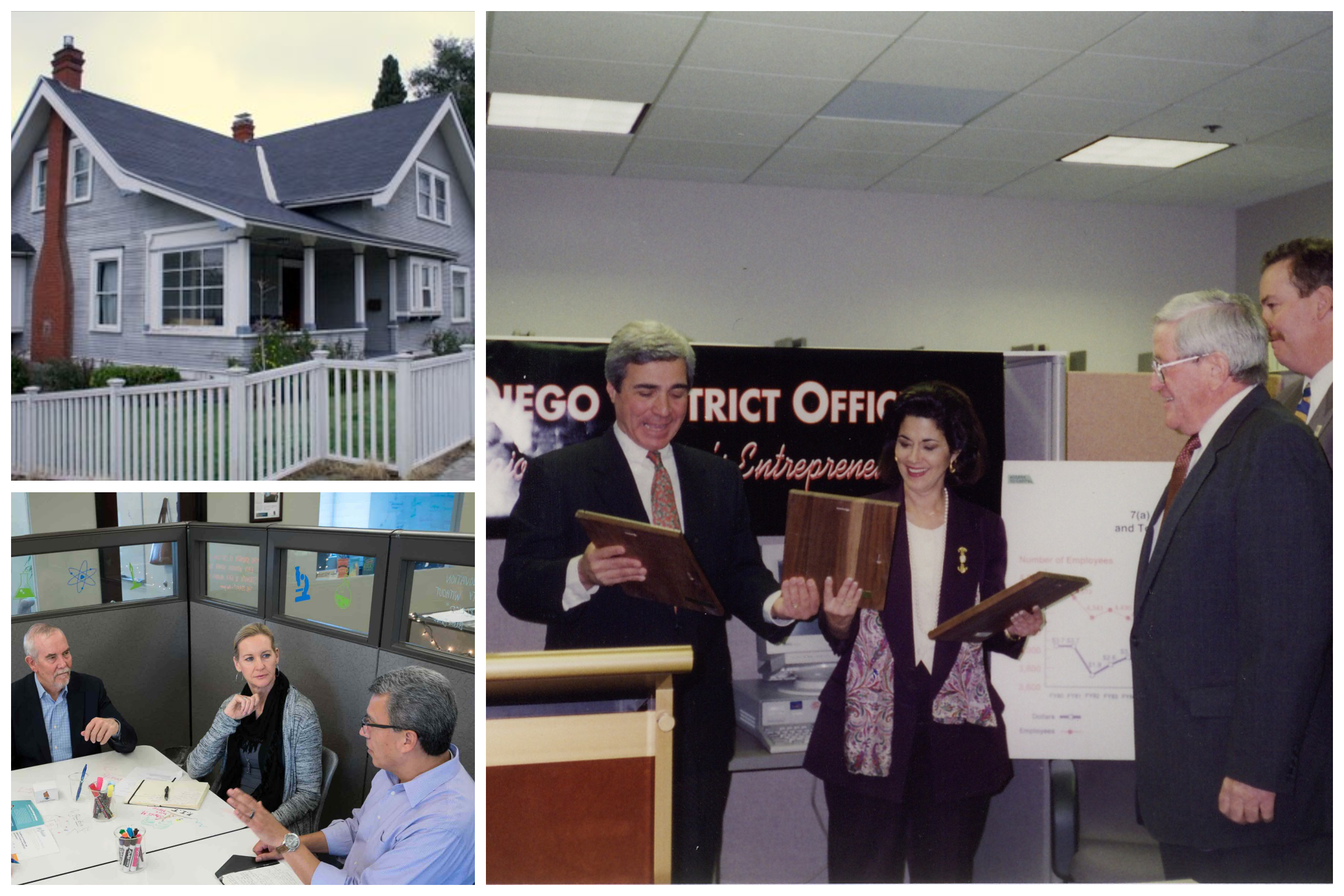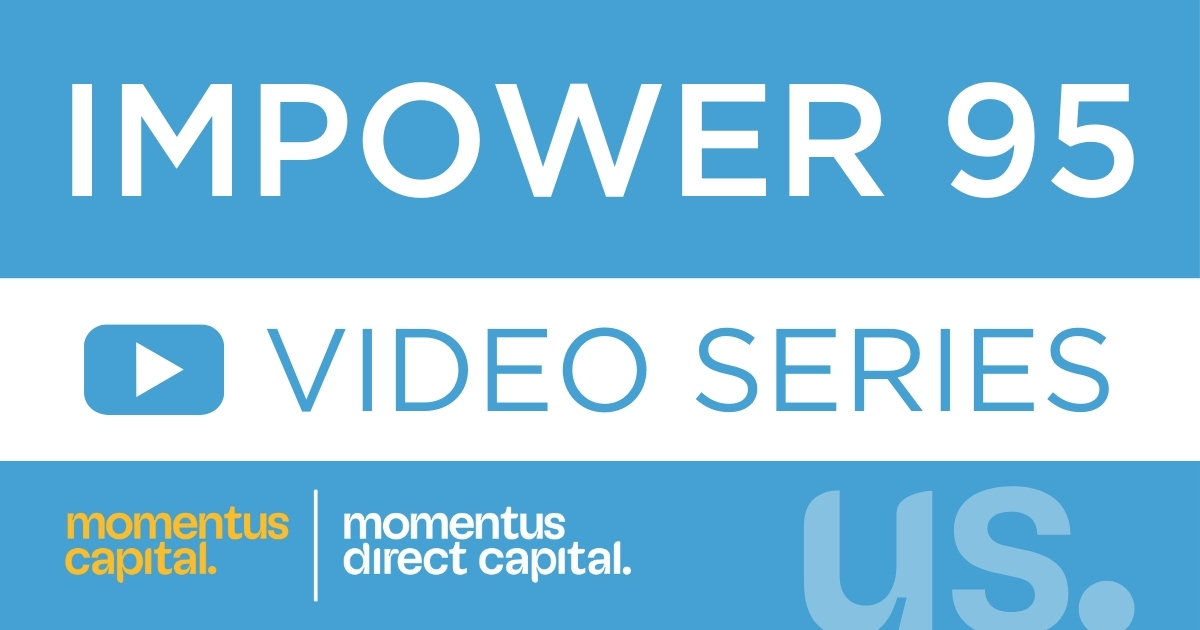Arthur H. Goodman, the late founder of CDC Small Business Finance, was known for his unorthodox leadership style.
During the organization’s early days, Goodman would occasionally close down the office for a day and dispatch employees to small businesses in disadvantaged neighborhoods that often went ignored. The goal here was to let those entrepreneurs know they too could access business capital to grow their businesses and create their own prosperity.
That was just Art’s way.
40 Years, By the Numbers
- Total financed: $18.4B
- SBA 504 total project financing: $18.3B+
- SBA 7(a) Community Advantage: $96.8M approved
- SBA Microloan: $9M
- Jobs created/preserved: 203,000
- Businesses funded: 11,000+
- Business-advising hours provided: 40,750
His enterprising drive and charitable spirit set the tone and long-term strategy for CDC Small Business Finance, now one of the leading small business lenders in the U.S. and a longtime advocate for entrepreneurs. Over the last four decades, the organization has provided $18.4 billion in business loans to 11,000-plus small business owners to help create 200,000-plus jobs.
“There’s no way Art knew in 1978 how much impact he’d have,” said Kurt Chilcott, who has served as the company’s chief executive and president since 1998. “There’s no way I’d know in 1998 that we’d now operate in 3 states (California, Arizona and Nevada) and have national programs. It’s quite extraordinary.”
The milestones spanning the last four decades go beyond issuing affordable business capital. Anchored by our long-standing core values of integrity, commitment, teamwork and making a difference, we’ve also carved out a niche as advocates for the small business community as a whole.
Join us in celebrating 40 years of CDC Small Business Finance history with this story-filled retrospective.
The Earlier Years: 1970s-1990s
1978, The Back Story: Over the years, while our organization’s name and designation have changed, one thing has remained constant: our purpose. We step up for entrepreneurs by advocating for and providing expanded, affordable capital access.
During the Jimmy Carter administration, federal officials traveled around the nation to drum up the creation of local development corporations (PDF), or LDCs. The idea was to inject more capital into more small businesses, and in turn, create more local jobs.

Scott Rodde, who was part of that outreach effort, was introduced to Arthur H. Goodman by way of then-San Diego Mayor Pete Wilson. Goodman, then co-founder of the largest business brokerage in California, flocked to the concept of an LDC mainly because of his unflagging passion of helping communities.
Together, Rodde and Goodman drew up incorporation papers for what became the San Diego Local Development Corporation. At this time, the organization offered SBA 502 business loans, long-term financing for fixed assets and the pre-predecessor to today’s SBA 504 program.
1980: Goodman became one of the founders of the National Association of Development Companies, or NADCO. This coincided with the U.S. Small Business Administration’s creation of the SBA 503 program, a direct loan program fairly similar to the SBA 504, one of the SBA’s current flagship offerings.
1981: The organization became the San Diego Certified Development Company in order to provide the SBA 503 product to business owners.
1983: Of all the CDCs in the U.S., the San Diego Certified Development Company “is the leader in practically every (SBA loan) category,” says the SBA. Arthur Goodman “has done an excellent job in seeking out San Diego businesses which are in need of additional financial support for expansion.”
1991: Final name change to CDC Small Business Finance.
SBA 504: Explosion in Business Loans, Economic Impact

Delivering impact in a targeted fashion and self-accountability have been important guiding principles at CDC Small Business Finance since its early days, says Mike Owen, the company’s chief credit officer.
Owen, who’s been with the company for 30-plus years, recalls Goodman would closely review monthly business development reports to see how and where loan officers were spending their time out of the office. If he noticed loan officers were mostly frequenting coastal areas, he’d urge them to visit more inland, urban areas.
“This approach allowed us to be champions of the underserved,” said Owen, who played an instrumental role in the explosive growth of the company’s portfolio of SBA 504 loans.
1986: SBA discontinues SBA 503 and focuses on promoting the SBA 504 loan program. The first SBA 504 loan is funded at CDC Small Business Finance.
1988: Sets new national 504 production record, with 43 loan approvals.
1989: Maintained status as nationwide leader of SBA loans and dollars funded.
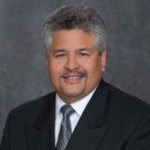
1993: First to reach 50 loan approvals in the SBA 504 program in a single year.
1997: First year CDC Small Business Finance recognized as largest lender in both SBA’s San Diego and Santa Ana district offices.
1998-1999: Breaking industry records with 300-plus loan approvals totaling $376 million in project costs and 10,000 jobs created to date.
2003: Marked our 25th year in SBA lending setting another SBA 504 lending record of 372 loan approvals.
2005: Continued leading the nation in SBA 504 lending, with 670 approvals representing $1.3 billion in small business expansion projects and more than 5,000 jobs created in a single year.
2008-2010: The Great Recession hits. Served as an opportunity to reconnect with existing borrowers struggling to stay afloat, helping save hundreds of companies from business and loan default.
2011: CDC creates a partnership to offer SBA 504 first mortgage loans to banks, bringing our loan offerings nationwide.
2018: Issued $18.4 billion in SBA 504 loans to date, creating and preserving 203,000 jobs. “It’s more than just the numbers,” Owen said. “What I see is a tremendous legacy you leave behind, in the companies we’ve helped and the jobs we’ve helped create. We’ve provided measurable impact.”
Expanding Business Capital Access
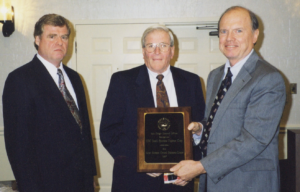
1990s: Our commitment to the concept of providing smaller-dollar loans to entrepreneurs predates the term “microloan.” During this time, we created three affiliated corporations in Southern California to provide small loans not then available in the marketplace. The funding would come from loan pools containing funds raised from banks. These corporations eventually combined to become one entity.
2001: First year participating in the new SBA Microloan Program. This allowed us to increase our impact within communities.
2010: Brought business advising in-house, allowing borrower clients to receive one-stop-shop experience, from free business coaching to funding. Since 2010, we’ve provided small businesses 40,000 of business-advising hours at no charge.
2011: One of six lenders in the nation granted authority to offer SBA 7(a) Community Advantage loans. This program arrived at an important time.
In the fallout of the Great Recession, SBA 7(a) fundings effectively dried up, creating a demand for a product providing smaller-dollar loans to businesses that are in the earlier stages of their enterprises, said Robert Villarreal, CDC’s executive vice president.
“Most small businesses are not in the position to buy commercial real estate,” he added. “With Community Advantage, we can meet the needs of those borrowers, too.”
2015: Recognized as the nation’s top lender in the SBA 7(a) Community Advantage and SBA Microloan programs, providing over $11 million in capital to small businesses.
2017: Small Business Finance Fund, our CDFI, launches.
2017: Continued to lead the nation in SBA 7(a) Community Advantage Loan program in both total loans and amount funded, with 127 loans and $19.8 million financed.
2018: Bestowed the SBA’s Jody C. Raskind Lender of the Year Award. The recognition is presented every year to a mission-focused lender that has gone above and beyond in helping small businesses get off the ground and expand.
Expansion Throughout the Years
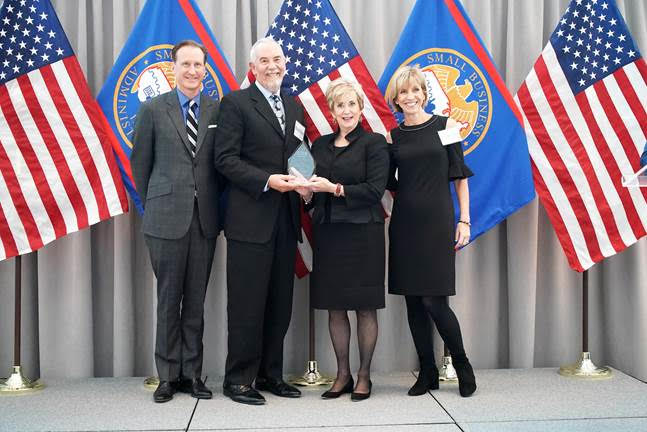
1992: SBA asks CDC Small Business Finance to serve Riverside County and take over the loan portfolio previously handled by the Riverside County Economic Development Company. CDC agrees.
Spring 1993: Orange County office becomes operational.
December 1993: Riverside office opens, bringing total locations to three.
2004: Los Angeles office opens.
2005: Office in Sacramento launched to serve the Northern California region.
2006: Multi-state expansion allowed; CDC opens office in Arizona.
2007: Expansion into Nevada.
2008: Office launched in San Jose to reach Bay Area small business owners.
On the Move: Shifting Company HQs
1978: Rented office space from the San Diego Urban League on Market Street, in downtown San Diego. Before becoming independent, the organization was previously affiliated with the San Diego Urban League. Goodman served as its vice president of economic development and business outreach from 1976-1981.
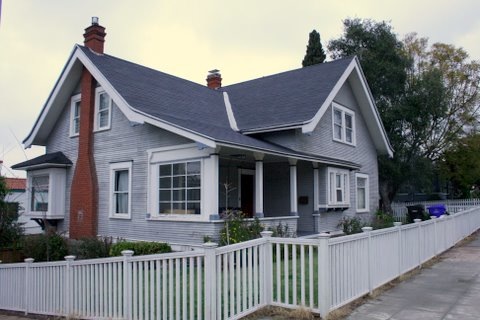
1980s: First dedicated office was a historic Victorian home that sat on 22nd and C Streets in Golden Hill, near San Diego’s downtown area.
1990-1997: As loan production increased, CDC Small Business Finance needed a larger office space. The office moved to a multi-story commercial office in Mission Valley. Around this time, the company led the nation in SBA 504 loan production, hitting 100 such loans.
“This was an era of a lot of growth,” said Kim Buttemer, CDC’s chief operating officer. “We were bursting at the seams in Mission Valley.”
1998: Company purchases its first commercial property, in Mission Hills. Buying the two-story, 7,000-square-foot building was not only a sound investment, it also underscored the organization’s conviction in the SBA 504 real estate program and the purpose it serves.
“We practice what we preach,” added Buttemer, who has been with CDC for more than 30 years. “Moving from leasing to owning gave us opportunity.”
2004: Became one of the first owner-tenants of Liberty Station in San Diego’s Point Loma neighborhood. The redevelopment site was previously the Naval Training Center, which shuttered in 1997. Upon moving in, CDC Small Business Finance’s building was the only structure on the whole block. Now, the fully redeveloped site is a bustling, mixed-use project replete with shops, restaurants and museums.
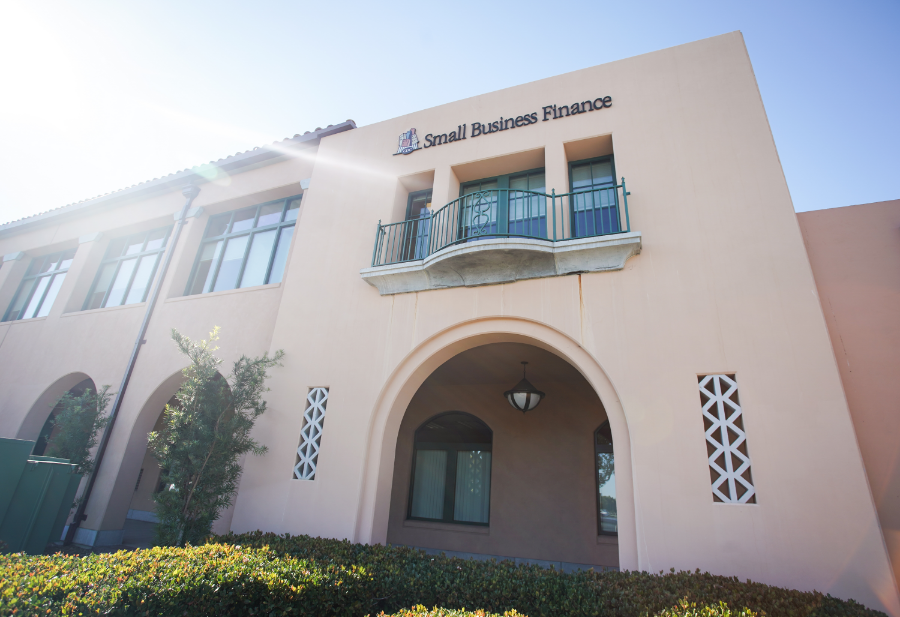
Remembering Arthur H. Goodman
1998: Arthur H. Goodman, CDC’s founder, dies. A scholarship is set up in his memory, and a fundraising luncheon was held shortly after to raise funds for the endowment.
The award honors community service-minded individuals transitioning from community college to four-year institutions in California or Arizona.
To date, the scholarship has provided over $250,000 to more than 60 students.
Ventures: Our In-House Software Business
1997: Early version of Ventures was just an in-house Access database created by Catherine Riddle and Miriam Voigt to generate documents and track servicing items.
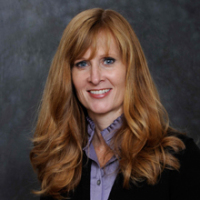
2004: Commercially launched in June at the request of more than a dozen CDCs who had heard of their program. “Our goal was not to take over the software world,” said Riddle, now CDC’s chief financial officer. “We were just trying to help other CDCs, and we developed our software out of necessity.”
2007: Transitioned from an Access database to a web version.
2009: User base hits 25 CDCs.
2013: Re-design and major upgrade/update of platform planned for Ventures.
2015: Ventures+, an upgraded version of the software, launches.
2018: More than 200 clients use Ventures+, which stands as one of the top portfolio-management resources in our industry. Rebranding and new payment processing feature unveiled.
Company Culture: Valuing Our Employees
Early 1990s to present: Company culture plays a massive role in the life of an employee at CDC Small Business Finance.
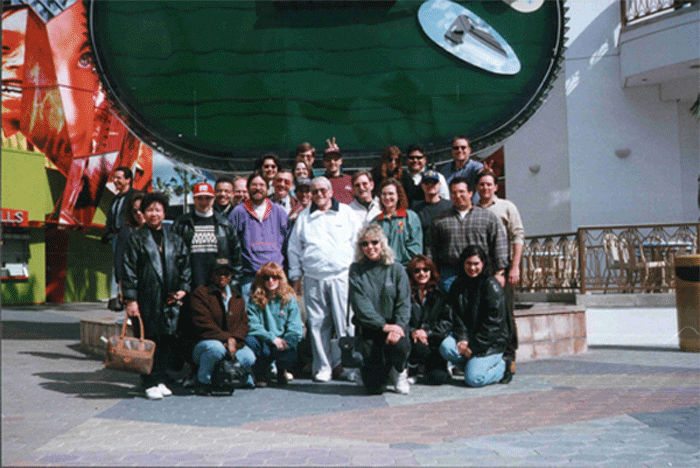
Some would argue this is rooted in the company’s first so-called “Ditch Day.” It was designed to be a day off for employees, allowing them to blow off some steam while spending quality time together. This tradition became especially important when CDC began to open offices in other counties and states.
“It was about getting everybody together,” said Erin Hebert, CDC’s executive vice president of administration and human resources.
More recently, a typical Ditch Day bash involves a State of the Company recap from Chilcott followed by an unorthodox team-building activity, from a bubble soccer match to a scavenger hunt.
Innovations (2010s to Present)
2015: Convened the “Genius Forum,” a meeting of the Who’s Who in the small business lending community to consider new ways to expand capital access to more entrepreneurs. This prompted the exploration and development of new products to accomplish that goal.
2016: Created the Lab, a physical space where we test and nurture innovative products to meet the evolving needs of small business owners.

2018: As part of the organization’s drive to diversify sources of capital, partnered with Prudential Financial to create a $15 million impact-investment fund. This pool will provide a new capital stream for small business owners in California, Arizona and Nevada seeking business loans.
“That’s a big shift,” said Allison Kelly, CDC’s senior vice president of strategy and innovation. “It puts us on the map in community lending in a whole new way.”
Looking back at the last four decades and looking ahead at the years to come, CDC Small Business Finance’s North Star remains its core values, which again are: integrity, commitment, teamwork and making a difference.
One especially worth noting is teamwork. This represents not only the importance of collaboration among our employees but also with key partners. We wouldn’t be here four decades later without the help of banks, brokers, the SBA, and so many more like-minded individuals and organizations.
“CDC is eternally grateful to our Board and staff, our lending partners and especially the small businesses we have had the honor of serving over 40 years,” said Kurt Chilcott, CDC’s president and chief executive. “
Related Articles
Over the last 40 years, CDC Small Business Finance has helped launch and grow their operations while planning for their long-term needs. We’re more than a small business lender, we’re an advocate for all entrepreneurs.
